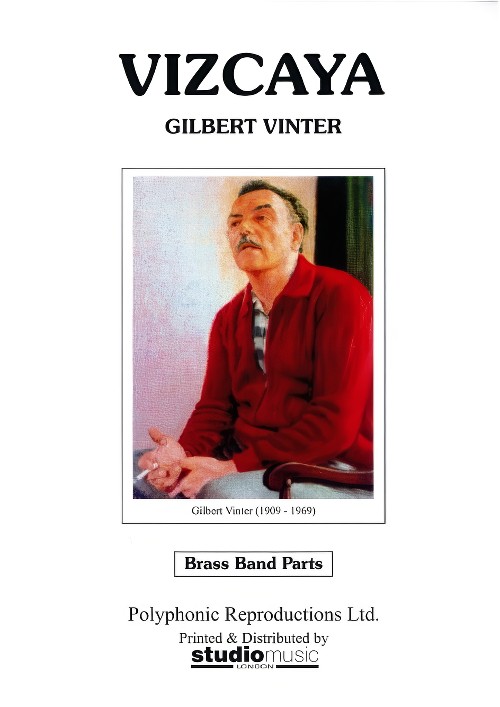We've found 52 matches for your search. Order by
Results
-
 £69.95
£69.95Vizcaya (Brass Band - Score and Parts) - Vinter, Gilbert
This work makes use of three Basque melodies. The final section, Fete Basque, may be played seperately as a concert item with an approximate duration of 4.30Suitable for 3rd Section bands and aboveRecorded on Polyphonic QPRL058D SPECTRUM: The Music of Gilbert Vinter Vol.1
Estimated dispatch 7-14 working days
-
£59.95
JOHN O' GAUNT (Overture) (Brass Band Set) - Gilbert Vinter
Estimated dispatch 7-14 working days
-
£59.95
ENTERTAINMENTS (Brass Band Set) - Gilbert Vinter
Estimated dispatch 7-14 working days
-
£44.95
CHALLENGING BRASS (Brass Band Set) - Gilbert Vinter
Estimated dispatch 7-14 working days
-
£82.95
Salute to Youth - Gilbert Vinter
Estimated dispatch 5-14 working days
-
£69.95
Simon Called Peter - Gilbert Vinter
Estimated dispatch 5-14 working days
-
£82.95
Spectrum - Gilbert Vinter
Estimated dispatch 5-14 working days
-
£74.95
Symphony of Marches - Gilbert Vinter
Estimated dispatch 5-14 working days
-
£82.95
Triumphant Rhapsody - Gilbert Vinter
Estimated dispatch 5-14 working days
-
£82.95
Variations on a Ninth - Gilbert Vinter
Estimated dispatch 5-14 working days
